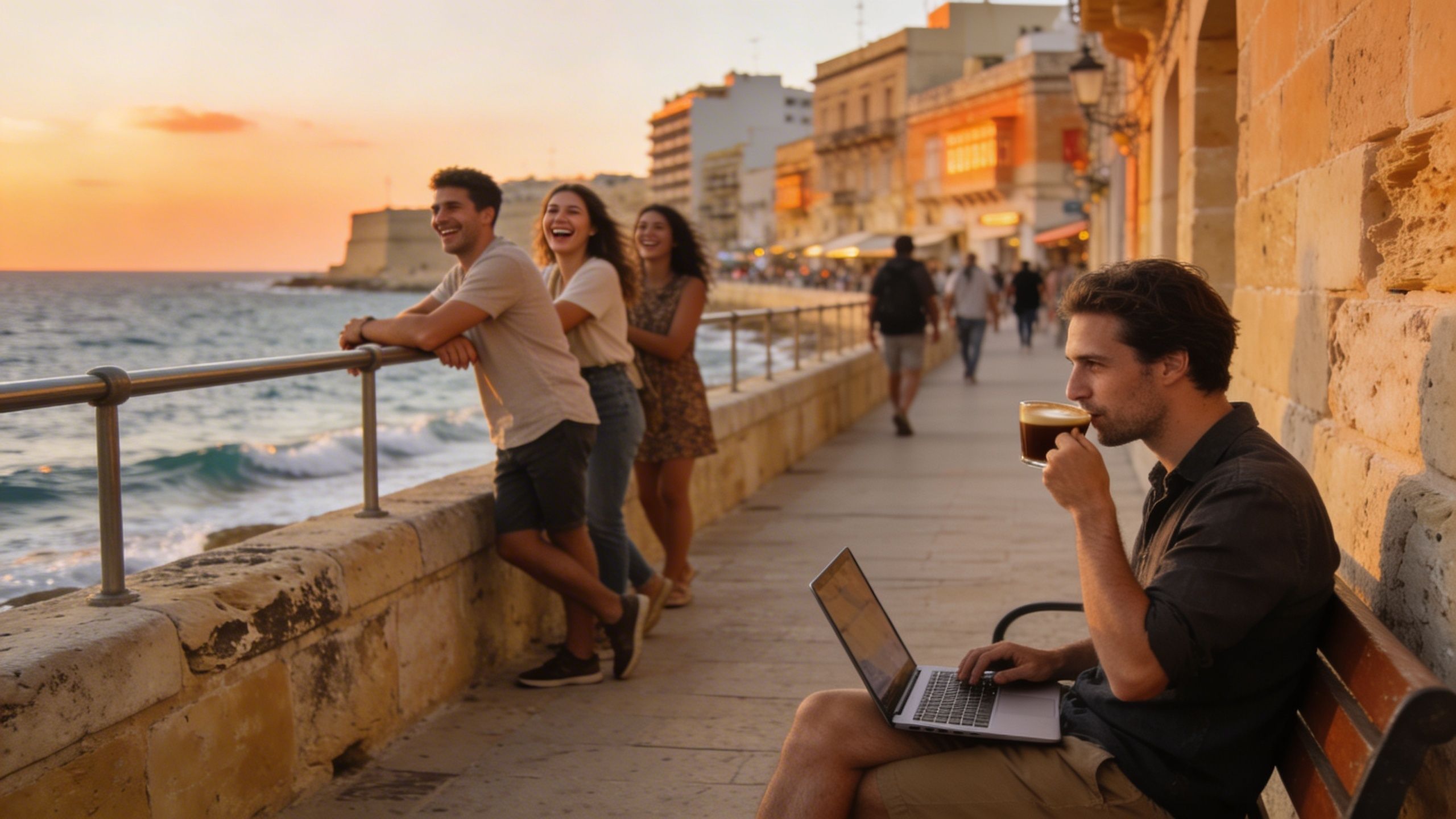Greek Title Deeds: Red Flags, Rituals & Real-Life Fixes
Fall for Greece’s daily pleasures — then lock the door with proper title checks. Practical steps and real red flags for buying with confidence.
Imagine sipping an espresso on a shaded table in Plaka, watching scooters thread between whitewashed houses and bougainvillea. The light hits the Acropolis and you realise this could be home — until the seller hands you a thin packet of old papers and you start asking: who actually owns this roof?
Living the Greece life — sun, markets and neighbourhood rhythm

Greece moves at two speeds: slow, convivial mornings in neighbourhood kafeneia and a brisk, modern pulse where coworking spaces and ferries meet. From Athens’ Anafiotika lanes to Chania’s Venetian harbour, daily life is about tiny pleasures — a morning market run, an afternoon sea dip, aperitivos at sunset. That vibe defines where you’ll want to buy: proximity to markets, sea, and reliable internet matters as much as square metres.
Neighbourhood spotlight: Athens — Anafiotika, Koukaki, Pangrati
Walkable, historic, surprisingly neighbourly: Anafiotika and Koukaki sit beneath the Acropolis and are full of terraces, tiny tavernas and short commutes to coworking hubs. Pangrati mixes vintage cafés with lively night spots. If you crave a sea breeze instead, look at Piraeus suburbs or Glyfada for yacht-adjacent living and better new-build supply.
Food, markets and the seasonal calendar
Saturday mornings mean mercados: Varvakios Market in Athens, the central fish market in Chania, and seaside farmers selling figs in small islands. Summer festivals turn squares into communal dining rooms; winter months slow the pace and reveal quieter bargains in property listings — a rhythm savvy buyers use to time offers.
- Lifestyle highlights: morning espresso at Little Kook (Athens), sunset swims at Vouliagmeni, Saturday market at Varvakios, olive oil tastings in Crete, after-work drinks on Ermou.
Making the move: how dreamy life meets legal reality

That romantic first visit quickly meets paperwork. Greece’s cadastre rollout is still ongoing, and many areas operate on older, person-based registries — meaning title checks are rarely a simple online click. A proper purchase pairs lifestyle scouting with a forensic title search through the Hellenic Cadastre and local land registry offices.
Property types & what they mean for daily life
Stone island homes feel magical but often come with inherited title quirks. New-build apartments in Attica offer fast Wi‑Fi and easy maintenance but can be pricier per square metre. Think: will you want a terrace for remote work, a courtyard for evening gatherings, or a small plot to grow tomatoes? Your lifestyle choices change the legal checks you must prioritise.
Working with local experts who actually live the life
- Use a licensed Greek lawyer who visits the registry in person; ask for a 20-year ownership trace; insist on a certificate of encumbrances; verify planning permits and building licences; confirm community (condo) fee history; check municipal tax and utility arrears.
Market context matters: prices have been rising in recent years, driven by foreign interest and constrained supply. Expect regional variation — Athens and Thessaloniki show different dynamics to island markets — and factor in inflationary pressure on rents and services when forecasting running costs. These economic trends change negotiation power and timing.
Insider knowledge: title traps, inheritance quirks and quick fixes
Here’s the honest stuff expats wish they’d known: many rural properties carry undivided inheritance shares, some buildings have retroactive legalisation needs, and boundary descriptions can be poetic rather than precise. These aren’t deal-killers if you plan ahead — they’re reasons to move slowly and hire the right people.
Cultural and procedural quirks that affect transactions
Greek sales often include staged face-to-face negotiations, deposits held in notary escrow, and a preference for resolving small disputes informally. Expect slower timelines than in some markets — but also a strong tradition of written notarial acts once the deal is formalised. Respecting local rhythms makes the process smoother.
- Red flags to halt the process: missing building permits, multiple unseen heirs, unpaid municipal taxes, mismatched cadastral boundaries, and sellers refusing lawyer inspections.
- Step-by-step due diligence: 1) Reserve with a preliminary agreement and small deposit; 2) Lawyer performs 20-year title and encumbrance search in land registry/cadastre; 3) Obtain building permit and energy certificate checks; 4) Clear municipal and utility debts; 5) Sign final notarial deed with certified translation if needed.
Practical fixes exist: title irregularities can be resolved by signed heir renunciations, retroactive building legalisation (when possible) or negotiated price adjustments to cover remediation costs. Always budget a contingency — legal clean-up can take months and several thousand euros.
What expats wish they'd known — lifestyle, seasonality and long-term thinking
Making friends, finding community and working remotely
Join local language classes, coworking meetups (Athens has several) and weekend cultural events. Network with island expat groups; they’re a goldmine of contractor recommendations and real-life warnings about unreliable sellers. Reliable broadband and a sheltered terrace make remote work joyful here — prioritise them when touring properties.
- Long-term lifestyle + buying factors: visa and residency options, tax residency thresholds, property management for absences, renovation timelines, off-season accessibility to islands.
If you imagine life here a year from now — weekend markets, a neighbour’s olive harvest, rooftop dinners — make those daily scenes your checklist. Does the kitchen get morning sun? Is there a fast café with reliable Wi‑Fi nearby? Does the notary use English translations? Those small details shape the life you buy, not just the property.
Conclusion: fall in love with the light and the lifestyle, but protect the dream with rigorous legal checks. Start with a lifestyle shortlist, then hire a local lawyer to chase titles, permits and encumbrances. With the right team, Greece rewards patience — you’ll have sun, community and the legal confidence to make the home truly yours.
Swedish, relocated to Marbella in 2018 to chase sun and property freedom. Focus on legal navigation and tax for Nordic buyers.


